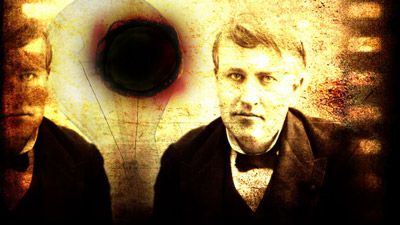- Qualcomm Launches Snapdragon 4 Gen 2 Mobile Platform
- AMD Launches Ryzen PRO 7000 Series Mobile & Desktop Platform
- Intel Launches Sleek Single-Slot Arc Pro A60 Workstation Graphics Card
- NVIDIA Announces Latest Ada Lovelace Additions: GeForce RTX 4060 Ti & RTX 4060
- Maxon Redshift With AMD Radeon GPU Rendering Support Now Available
Edison to Control Movie Industry, Fails – History Repeating?
“Those who don’t know history are destined to repeat it.” Edmund Burke, 1729-1797. It’s amusing to think how often we use that quote in one form or another and never take heed of the advice it tries to imbue upon us. Back in 1908, Thomas Edison tried to take control of the movie industry through litigation, patents and controlling film distribution. In 1915, he and his fellow cohorts even managed a Supreme Court sanction that declared Content Regulation did not violate the First Amendment.
Ars Technica digs through the past to discover what happened, the implications and what finally lead to the demise of this rather insidious endeavour by one Thomas Edison. It would not be such a stretch to see the very same legal fighting we see today and compare it to that of the past. Patent Trolls abound, Movie conglomerates fighting over Digital Rights Management – trying to control how, when and where we can watch films. Games, mobile devices, music, it’s not just the movie industry partaking on the same path as Edison, Content Publishers making demands of Content Delivery systems, not in the interest of the consumer, but in the interest of themselves.
While it may be written, the mistakes of today will not always reflect those of the past. It is comforting to know that this state of turmoil may be transient, that the good guy’s win and our rights to freedom will flourish again – well, as far as picking content is concerned, but my personal concern, maybe shared by others, is how such systems are allowed to take hold in the first place. We’re still in for a rough ride over the next few years, (as long as we don’t have another Supreme Court sanction), but as long as we can get Publishers to listen, we may finally be able to watch a digital copy of Avatar without it self destructing because we used it on an uncertified device, wrong time zone, wrong country, limited internet connection, unsuitable codec, screen too big/small…

It was a dark and stormy night on December 18, 1908. Okay—maybe it wasn’t so dark and stormy. But it should have been, because that was the night Thomas Edison tried to hijack the motion picture industry. “With his beetle brows, long wispy hair, and beatific look, Edison might have seemed the addled inventor,” writes the historian Neil Gabler, “but he was a shrewd businessman and a fearsome adversary who was never loath to take credit for any invention, whether he was responsible or not.”




